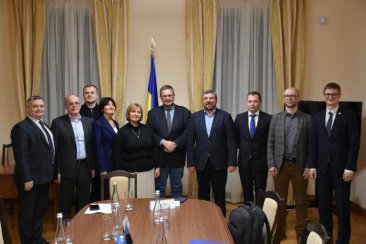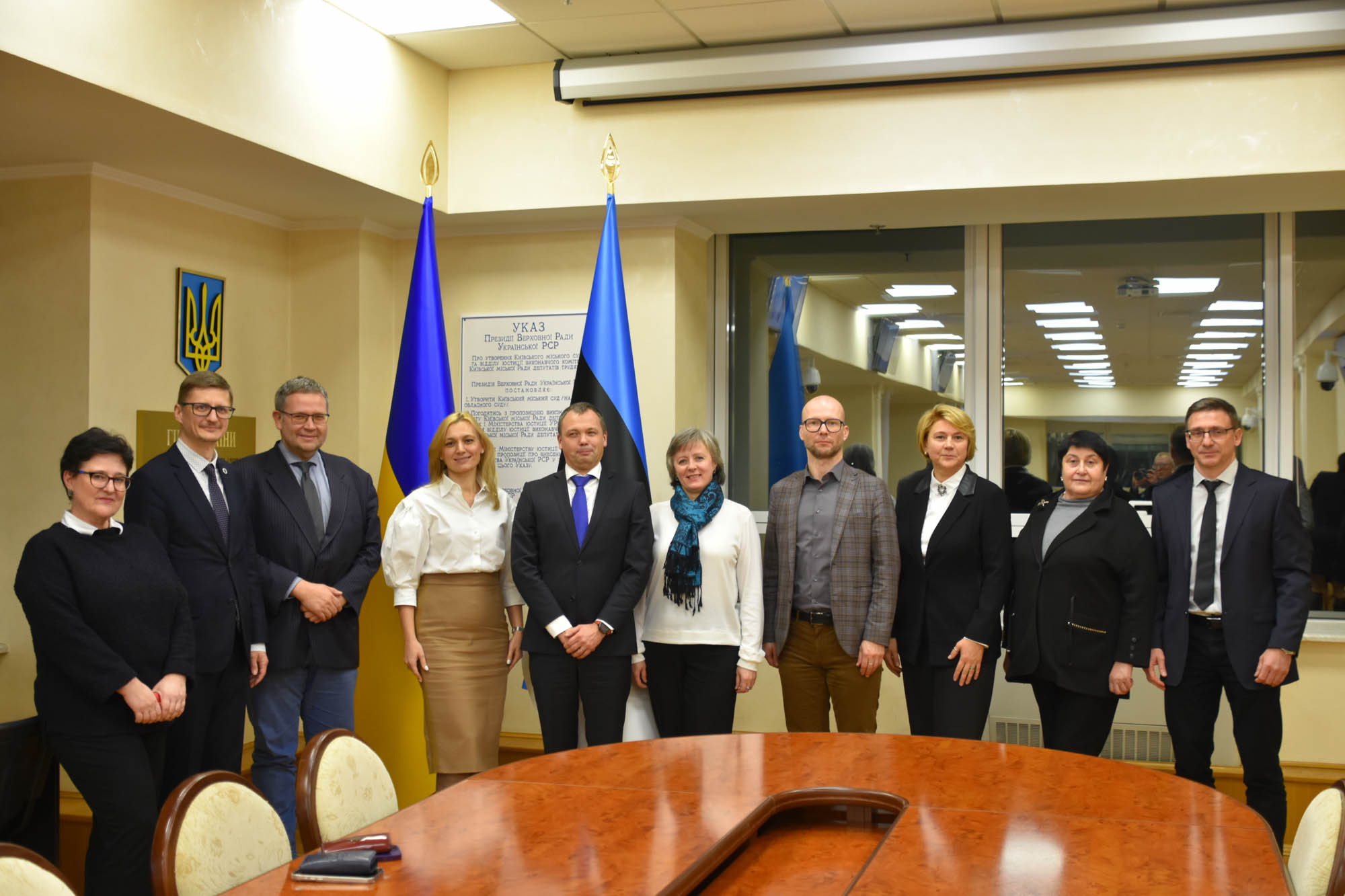Contact center of the Ukrainian Judiciary 044 207-35-46

Borys Hulko, President of the Civil Cassation Court of the Supreme Court, met with a delegation from the Supreme Court of Estonia led by its Chief Justice, Villu Kõve. The delegation also included Ivo Pilving, Chairman of the Administrative Law Chamber of the Supreme Court of Estonia, Urmas Volens, Chairman of the Civil Chamber, and Paavo Randma, Justice in the Criminal Chamber.
Borys Hulko informed his colleagues that the number of judges of the Civil Cassation Court of the Supreme Court is 53. Today, 14 positions are vacant, two judges are seconded to the High Council of Justice, one judge is serving in the Armed Forces of Ukraine, and five other judges have been elected to the Grand Chamber of the Supreme Court. In other words, 32 judges conduct court proceedings in the Civil Cassation Court of the Supreme Court.
The President of the Civil Cassation Court also spoke about the specifics of the work of the judges in the panels, judicial chambers and the joint chamber, noting that the Court is an appellate court for cases concerning the recognition and enforcement of arbitral awards and international commercial arbitration.
Borys Hulko presented statistics according to which the Civil Cassation Court of the Supreme Court has received 155,148 cases, procedural appeals and cassation appeals since the beginning of its work, and 17,848 cases in 2023. Of these, 9,208 have been resolved and a further 6,421 are currently pending.
Each judge now has a workload of around 350 cases a year. However, this figure only includes cases in which the judge is the rapporteur, while the judge also participates in the consideration of cases as a member of the panel. Taking this into account, the total workload per judge is up to 1150 cases per year.

The President of the Civil Cassation Court of the Supreme Court also spoke about cassation filters, saying that the Court applies them carefully and cautiously, given the need to ensure uniformity of case law on a wide range of issues. In addition, according to Borys Hulko, there is currently a lack of alternative (extrajudicial) dispute resolution methods. Two years have recently passed since the adoption of the Law of Ukraine "On Mediation", but this institution is not yet functioning properly.
Borys Hulko also drew attention to the decisions of the Supreme Court on the limitation of the judicial immunity of the Russian Federation. At the same time, the judges of the Supreme Court, in their methodological recommendations to their colleagues, emphasise that decisions in cases involving claims against the aggressor country must be properly motivated.
Dmytro Luspenyk, Secretary of the Plenum of the Supreme Court, Secretary of the First Judicial Chamber of the Civil Cassation Court of the Supreme Court, explained how judges consider cases and make decisions in panels and informed how disputes are resolved regarding the respective jurisdiction of civil, commercial or administrative courts. He also highlighted the work of the Joint Chamber of the Civil Cassation Court of the Supreme Court, pointing out that 65% of the cases submitted to it do not concern differences in the judicial practice of panels or chambers, but rather the motivation for the need to deviate from the previously formulated legal position.
At the same time, Dmytro Luspenyk noted that in addition to hearing cases, Supreme Court judges teach at the National School of Judges of Ukraine and regularly provide methodological assistance to their colleagues in the first and appellate instances.
The meeting was attended by the Secretaries of the Second and Third Judicial Chambers of the Civil Cassation Court of the Supreme Court Maryna Chervynska and Iryna Falovska, Supreme Court Judge of the Civil Cassation Court Yevhen Petrov, Supreme Court Judge of the Administrative Cassation Court Yan Bernaziuk and Head of the Division for International Legal Cooperation of the Supreme Court Lina Hubar.
The Estonian Supreme Court delegation also visited the Kyiv Court of Appeal, where it met with the Vice President of the Court, Hanna Kryzhanivska, and judges of the Civil and Criminal Chambers.
Hanna Kryzhanivska spoke about the work of the court under martial law and provided statistics on the receipt and consideration of cases, noting that the rate of receipt in 2023 had almost reached the pre-war level.